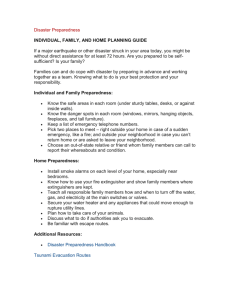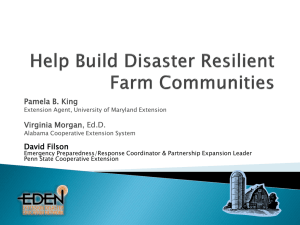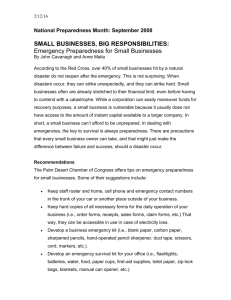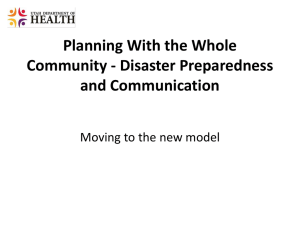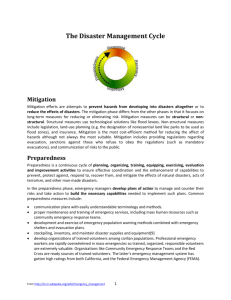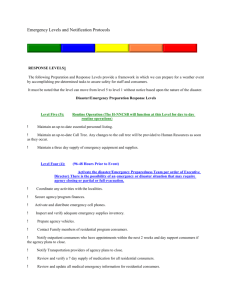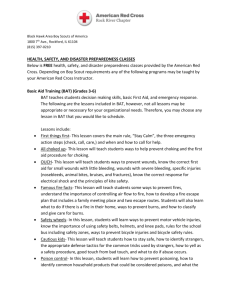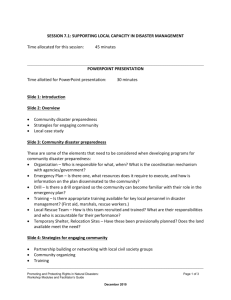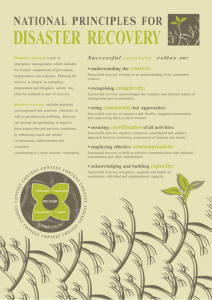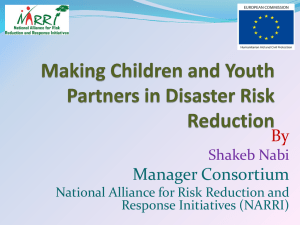Lessons Learned
advertisement
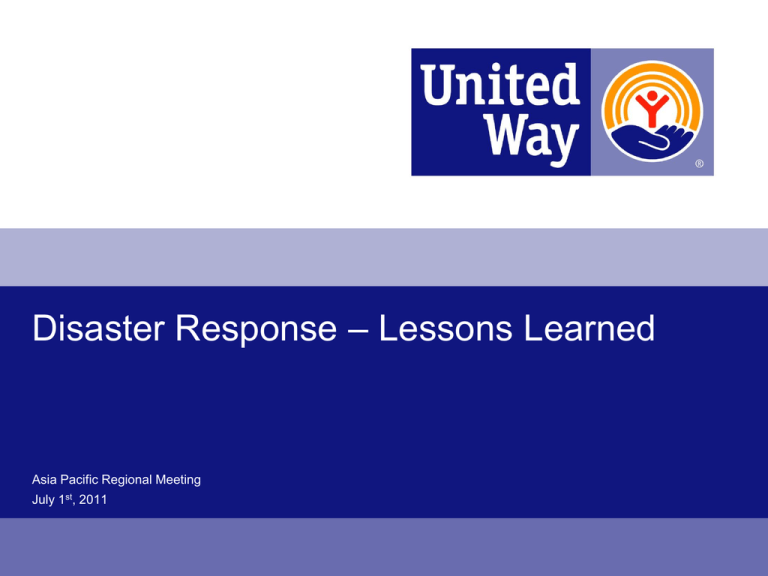
Disaster Response – Lessons Learned Asia Pacific Regional Meeting July 1st, 2011 A variety of challenges…. • Tsunami of 2004 • Mumbai floods in 2005 • Terror attacks in 2006 and 2008 • Earthquakes in China and Japan • Typhoons throughout the region 2 United Way’s Position in the effort Government and Red Cross 1.Reconstruction for social welfare agencies 2. Evacuee Shelter services 3.Fund reconstruction plans Emergency response Temporary relocation reconstruction 3 Disaster Response Planning and Process Performances Quality Cost • Define the work (What) • Identify completion time (Time Line) • Identify resources needed (How much) • Draw budget plan (Cost) • Determine roles (Who’s) • Monitoring progress • Report & Course Correct Time Planning - Scheduling - Controlling 4 4 Keys to successful responses from United Ways across the region • Partnerships • Civil Society Groups • NGOs • Corporations • Citizens • Community Health Volunteers •Capacity Building • SWOT Analysis • Trainings for key governmental and NGO partners • Resource Generation • Internationally and Domestically 5 A partnership in action Involves key representatives such as Corporations Local Municipal Ward Office: MCGM Hospitals Civil Defense College Volunteers NGOs & CBOs, Citizens Groups Platform for this process is provided through Multistakeholder Meetings arranged thrice a year in each ward with agendas such as Monsoon Preparedness and Disaster Preparedness respectively in each ward. Fire Brigade Meetings hosted by local municipal ward office: UWMH as Catalyst 6 Results Samsung School Of Hope BMW Mobile Bintang Learning Disaster Response Trainings for local hospitals, college students and police 7 Impact in the Community • Increased community preparedness and resilience : Community Based Disaster Preparedness networks of the trained volunteers in disaster response and management • Platform / Forum institutionalized (through Multi Stakeholder Partnership) for key stakeholders to work towards common disaster preparedness and management plan • On ground functional network of government agencies and civil society groups 8 Lessons Learned • Disaster management should be planned for and worked on before the disaster happen • Training volunteers in advance so that they can be activated during a crisis • Many people are involved in a disaster response effort – involve them in the preparations • Leadership matters • Transparency prevents you from Media disasters 9
